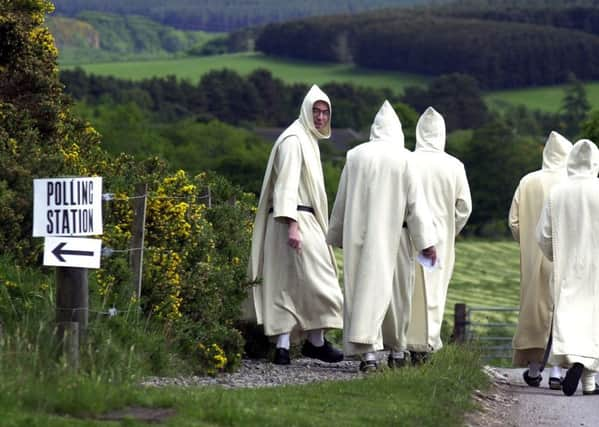General Election 2017: Four million Scots head to the polls


When the polls open today at 7am, the hall will welcome the 309 voters are who registered to cast their ballot here. Given the variety of jobs many locals work - from crofting to fishing - it is likely many will already have sent a postal vote.
While business may be slower in North Unst than most urban polling places, it will be positively brisk compared to Uyeasound public hall further south on Unst - where a total of 97 voters are registered.
Advertisement
Hide AdAdvertisement
Hide AdBut despite their remoteness, these rural outposts of democracy abide by the same eletoral rules as anywhere else in the country.
There will be 4,710 polling stations in Scotland open for today’s general election, the second UK-wide poll in two years, with nearly 10,000 staff on duty.
There are 3,988,420 people in Scotland registered to vote, according to the Electoral Commission.
When the polls close at 10pm, some 3,000 counting staff will work through the night to process the results north of the border.
By 5am on Friday, we should have a clear idea of which party will emerge with the most seats and who is heading for Downing Street.
UK-wide, there are 41,000 polling stations across the UK for a total electorate of 46.9 million, up from 45.8 million in December 2016. Of the 1.1 million voters to have joined the electorate since 2016, almost a third (31%) are in constituencies in London and south-east England.
In 31 seats the size of the electorate has gone down, with the largest drop in Banbury (down 6%).
Of the top 50 seats with the biggest increase in electorate, 31 were won by Labour at the last election and 13 by the Conservatives.
Advertisement
Hide AdAdvertisement
Hide AdGeneral elections, in their current format, date to the Parliament Act 1911 which introduced the requirement that all constituencies be contested on the same day.
The last election not to be held on a Thursday was the poll on Tuesday, October 27, 1931, which delivered a landslide majority for Stanley Baldwin’s National Government.
But the first past the post system (FPTP) used at general elections remains a point of controversy.
One in three believe their vote won’t count on Thursday – with nearly half of those saying it’s because the same person gets in every time, according to BMG Research polling commissioned by the Electoral Reform Society.
A further fifth say it’s because they don’t feel voting changes anything, while one in seven view the election result as a foregone conclusion.
It follows research showing one in five UK electors will be ‘holding their nose’ and voting tactically on Thursday – double the proportion in 2015.
The ERS say the figures are a ‘damning indictment of a voting system that writes off millions of people’s votes’ given the persistence of safe seats and tactical voting under First Past the Post.
The majority of UKIP voters (55%) and 49% of Green voters do not believe their vote will count, compared to just 19% of Conservative voters and 30% of Labour supporters.
Advertisement
Hide AdAdvertisement
Hide AdOverall, 46% of people think their vote will count on Thursday, with the figure actually lowest among older voters – just 30% of 65-74 year olds and 21% of those aged 75+ say their vote will make a difference. The figure is 45% for 18-24 year olds.
SNP voters are the most likely to say their vote will count, at 69%, while Lib Dems are evenly split.
Voters in the North West are most likely to think their vote will matter.